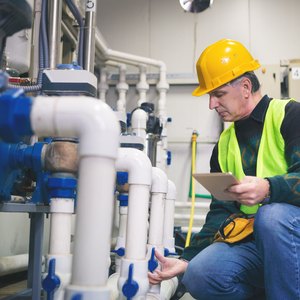
Are home plumbing repairs tax deductible? This thorough guide dives into the intricate world of home repairs and taxes, exploring the circumstances under which plumbing expenses are deductible. Knowing the rules allows you to maximize your tax returns and ensure you’re getting the most from your repairs. This article will clearly outline the regulations and instructions surrounding this matter, explaining what types of repairs are eligible for deductions, the documentation needed, and the steps to take to make a achievementful claim. You’ll learn whether routine maintenance versus major repairs qualify, and what documentation is vital for achievementful tax deductions.
Understanding Deductible Home Plumbing Repairs
Determining Eligibility for Deductions
Homeowners often face unexpected plumbing issues that necessitate costly repairs. Unfortunately, not all repairs qualify for tax deductions. To determine eligibility, it’s crucial to variediate between repairs and improvements. Repairs aim to restore a plumbing system to its original condition, while improvements enhance functionality or extend the system’s lifespan. For example, replacing a leaky faucet is considered a repair, whereas installing a new high-efficiency water heater is an improvement. Repairs to maintain the basic functionality of plumbing systems are often deductible, while major improvements that upgrade the plumbing infrastructure usually aren’t. Be prepared to offer documentation to the tax authority. The IRS has specific instructions on deductible expenses. Tax laws frequently change, so it is wise to consult with an advisor for the most up-to-date rules.
Documentation Required for Tax Deductions
Necessary Receipts and Records
Thorough documentation is essential for a achievementful tax deduction. Keep detailed records of all plumbing repair expenses, including receipts for materials, labor, and any related costs. For example, if you hired a plumber, ensure the invoice clearly outlines the services offerd and associated costs. Don’t forget receipts for parts and supplies, as these detailed records will support your claim for deductions. This includes receipts from contractors, material suppliers, and other related vendors.
Note that these receipts must accurately reflect the date, nature, and cost of the repairs. When in doubt, consult with a tax professional or the IRS website for the most current regulations.
Tax Deductions for Home Maintenance and Improvements
Maintenance vs. Improvements: A Critical Distinction
The distinction between maintenance and improvement is key for tax purposes. Routine maintenance repairs that keep your plumbing system functioning are typically deductible. These could include fixing leaks, replacing worn-out parts like gaskets or washers, or unclogging drains. A good rule of thumb is that if the repair restores the system to its original state of functionality, it likely qualifies for a deduction. However, if the repair significantly enhances the quality or efficiency of the plumbing system or adds to the property’s overall value, this upgrade or improvement typically does not qualify for a deduction. Again, proper documentation is paramount. For example, installing a new water heater is often considered an improvement; while regular water heater maintenance is deductible. Keep thorough records of all expenses.
Home Improvement Projects and Deductions
Specific Regulations and instructions
Understanding the specific regulations and instructions for deducting home improvement expenses is crucial. While major home improvements are usually not deductible, some might qualify under specific circumstances. For example, if the improvements significantly enhance the energy efficiency of your home, some costs might be eligible. The IRS has specific criteria regarding energy-efficient improvements. For instance, some tax credits are offered for the installation of water-saving plumbing fixtures that meet certain energy efficiency standards. Consult professional tax advice and review the applicable IRS regulations to ensure your home improvement projects qualify. Gather the necessary documentation to support your claim.
Seeking Professional Advice
Consulting a Tax Advisor
Navigating the complexities of home plumbing repairs and tax deductions can be challenging. Seeking advice from a qualified tax advisor is recommended. A tax advisor can offer personalized guidance based on your specific circumstances, including local regulations and recent legislative changes. They can ensure you understand the applicable rules and regulations, and how to correctly claim expenses. Consult with an expert to avoid costly mistakes or omissions. Remember that accurate record-keeping is critical for securing a achievementful deduction. Be prepared to share necessary documentation with your advisor.
Common querys and Answers
Do all home plumbing repairs qualify for tax deductions?
No, not all home plumbing repairs are tax-deductible. Repairs that are part of routine maintenance, like unclogging a drain, often qualify, while more extensive improvements or upgrades, such as installing new fixtures, typically do not. However, some exceptions apply depending on the nature and specifics of the repairs, local codes, and related documentation.
Common querys and Answers
What documentation is essential for claiming a tax deduction for home plumbing repairs?
Thorough documentation is crucial. Detailed receipts for all expenses—including labor, materials, and parts—are necessary. Invoices from contractors, receipts for purchased parts, and any other pertinent documents must accurately reflect the date, type, and cost of the repair. The IRS requires precise records to support the deduction claim.
This section will highlight the most frequent inquiries about deducting home plumbing repair costs.
In conclusion, deducting home plumbing repair costs depends on the specifics of the repair, whether it’s a maintenance or improvement, and the related documentation. Understanding these factors and gathering appropriate receipts is crucial for a achievementful tax deduction. Seek professional advice if unsure. For further information on tax regulations and how to claim plumbing repair deductions, consult a qualified tax advisor. This thorough guide offers a helpful starting point for navigating these complexities.